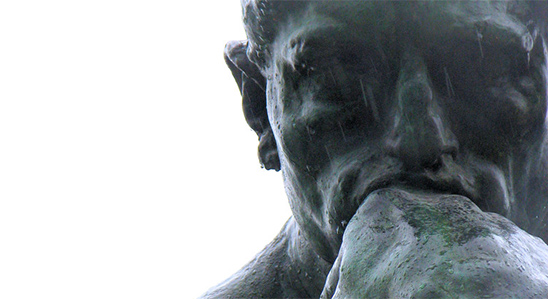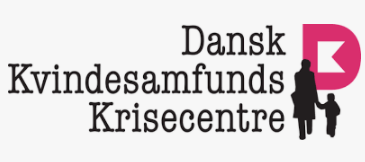After Thoughts: An Anthropological-Philosophical Investigation of the Ethical Aspects of Victims' Responses to Wrongdoing
The project investigates the ethical questions that emerge among people who have been exposed to wrongdoing; questions about, for example, anger, hatred and shame, revenge, justice and reconciliation, forgiveness, hope and trust.

Exposure to violence and wrongdoing can leave behind several kinds of injury and challenge; physical, psychological, social, and legal. But also moral. In this project, scholars (with training in philosophy, anthropology, sociology of religion, and psychology) and practitioners from the Danish Victim Service, the Danish Women’ Society’s Shelters, and DIGNITY's rehabilitation clinic for traumatized refugees and their families, team up in order to develop and integrate an ethical and humanities-based perspective in the care we offer to people who have been exposed to various forms of violence and wrongdoing.
The project takes its point of departure in the observation of a two-sided need for new research:
Empirical research of responses to violence and wrongdoing in Denmark lacks focused and systematic studies of victims’ moral responses to the wrongdoing they have been exposed to (or continuously lives with). Practitioners know that victims face moral issues and live with moral remainders related to the experience of wrongdoing, but the practices and care supported by psychological, psychiatric, medical, and legal research are not prepared to deal with the moral issues as such.
Philosophers and ethicists have – roughly speaking since Socrates - analyzed and discussed moral issues emerging from victims’ responses to being wronged. However, philosophical investigations of moral injury, moral emotions, and moral repair typically relate to material from literary classics or existing victim testimony e.g. from the Holocaust (Primo Levi, Jean Améry).
This project facilitates a rapprochement between ethical-philosophical thinking and empirical-ethnographic research, in order to develop new and practice-relevant knowledge about the moral implications of exposure to wrongdoing.
The project is developed and designed as an equal collaboration between research and practice. Thus, the idea is not to first develop new theories and then to apply them in practice. Instead, we aim at producing new knowledge while working with our partners on the development of their methods, educational activities and outreach to the wider public.
The project requires bridge-building between research and practice, but it also requires an open exchange of ideas and methods across the differences between philosophy, anthropology, sociology, and psychology). It is precisely through this traffic across sectors and disciplines that we, the project group as a whole, aim to develop new understanding of victims’ moral after thoughts and responses to wrongdoing and violence.
Ultimately, the purpose is to qualify our ability – across professions, specializations, and expertises – to understand and talk with people who have been injured in ways that have left them with complex and longterm moral injuries and remainders.
- Knut A Guldbrandsen, national chairman, Victim Support Denmark
- Dorte K. Mortensen, head of secretariat, Victim Support Denmark
- Maria Søndergaard, Director, Danish Womens’ Society’s Shelters
- Anja Radeka, Project leader, Danish Womens’ Society’s Shelters
- Simone M. Larsen, academic project assistant, Danish Womens’ Society’s Shelters
- Marie Høgh Thøgersen, Head of Clinical Research, DIGNITY, Danish Institute Against Torture
- Søren Bothe, Clinical and Research Psychologist, DIGNITY, Danish Institute Against Torture.
Research group
- Margaret Walker, Professor emerita, Marquette University.
- Veena Das, Professor, John Hopkins University.
- Johannes Lang, senior Researcher, DIIS.
- Anne-Marie S. Christensen, Professor, Syddansk University.
- Dan Zahavi, Professor, University of Copenhagen and Oxford University.
Practice group
- Karin S. Madsen, independent consultant
- Mette J. Madsen, mediator, The Danish Centre for Conflict Resolution
- Eva Bertelsen, Head of Research and Development, LOKK - National Organisation of Women's Shelters in Denmark.
- Lumi Zuleta, Senior Advisor, Danish Institute for Human Rights.
- Hannah Katznelson, Clinical Psychologist, Rigshospitalet.
Researchers
Internal
| Name | Title | Phone | |
|---|---|---|---|
| Brudholm, Thomas | Associate Professor - Promotion Programme | ||
| Johansen, Birgitte Schepelern | Associate Professor | +4551302570 |
External
| Segal, Lotte Buch, Lecturer, | Edinburgh University |
| Thøgersen, Marie Høgh, Head of Clinical Research | DIGNITY, Danish Institue against Torture |
Funding
 Project period: 1 August 2022 to 31 July 2025.
Project period: 1 August 2022 to 31 July 2025.
PI: Thomas Brudholm


